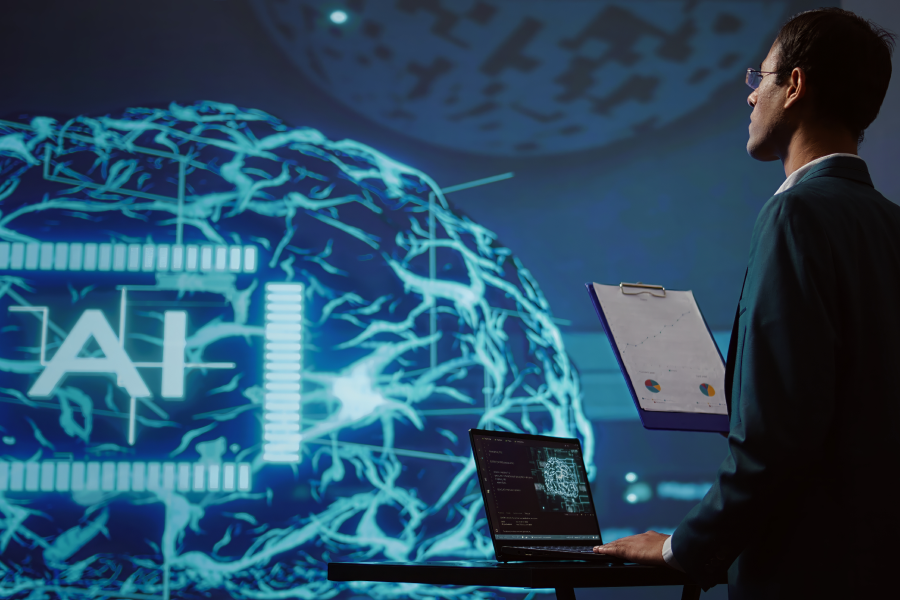Digitalization has been creeping into the health system for a long time now. Providers have been adopting technology that can track, trace, and collaborate for solutions. However, a lot is left yet to be explored.
Especially from the onset of the COVID-19 pandemic, people have begun to question whether or not enough is done on the healthcare front yet. Not only this, the quality, efficiency, and safety of patients through this system are also being scrutinized.
To combat the newly popped issues, accelerated technology implementation is beginning to be approached. Here is a synopsis of ways in which technology can change the healthcare game.
· Usage of mobile computers
If an event affects a large part of the population, the pressure does fall on healthcare providers also. For example, a pandemic such as COVID-19 has led to the exhaustion of hospital resources. Besides, it also has possessed the requirement of a large number of doctors and staff members.
This issue can be resolved by deploying mobile computers to use. This way the staff can stay connected with colleagues beyond geographical boundaries. Furthermore, they can also increase work efficiency by accessing the medical history of a patient. It will increase the number of patients attended and decrease the need for physical presence.
· Remote monitoring technologies
Another smart usage of technology is putting a wristband with barcodes on every patient who gets admitted to the hospital. This way the care provided can be tracked and administered. The staff can scan these wristbands using their mobile computers to easily track the record. Also, the patient’s location can also be tracked via the barcode on this wristband.
Another piece of technology, Radio-Frequency Identification (RFID) tags can be an attachment to the wristband. This ensures that the visibility of the band information is to many RFID systems or Real-Time Location Systems (RTLS).
Internet-of-Things (IoT) devices can also be used to alert the staff about sudden status changes.
· Lab Management
When the volume of samples being sent to the lab for testing multiplies, the need for an efficient technology arises. Labels with barcode or RFID tags can be attached to every specimen along with a positive patient ID. This makes retrieving information through synced mobile printers quite easy.
Scanning labels at every stage will reveal who took the sample, the date of the sampling process, etc. As the barcode is scanned, the previous information will be revealed and new information can be added conveniently.
· Identifying the availability of equipment assets
As the impact of an event on the population increases, so does the need for hospital equipment like ventilators, beds, heart monitors, and so on. For example, during COVID-19, ventilators were a much needed technological piece.
Affixing an RTLS tag to every piece of equipment makes the tracking of asset availability easier.
· Stock Management
Inventory/stock management issues can be easily resolved by just labeling the products as and when they are used. This can help in scanning or locating items. Usage of items such as masks, medical devices, or medicine should be noted in the system. The quantity used within a hospital or a healthcare institution should form the foremost part of the input.
This can also be used to track the requirements and expiration of items.
· Regulating Supply Chain
Managing the supply chain also forms a predominant part of the system. If the staff begins to scan items every time they use it, the system will be notified every time new stock is needed and potentially order it. This will help in making judicious decisions about the supply chain and avoid excess stocking up.
Additionally, RTLS or barcode can also track the availability of resources and notify the staff about the wise usage of products due to delivery delay or any other discrepancy. The level of accountability ensures that there is no theft or fraud.
In Essence
Technology has paved the way in the field of healthcare a long time back. But, the pandemic has added to the urge for advancement in the area to better the patient experience and efficiency of treatment.

If your healthcare system is already equipped with the requisite technology, then you just need to make necessary upgradations as and when required. Implementing technology in the healthcare sector with a great magnitude can help in transferring data efficiently and delivering the best possible services.
At SoftGrid Computers, our expert healthcare software developers can help you change the face of technology that you might leverage in your health institution. This combination of managing and treating patients with technology assistance will make things easier for both; the patient and the practitioner.
Contact us now to learn more about us and our services!

 Web and Full Stack
Web and Full Stack CMS and Frameworks
CMS and Frameworks Online Marketing
Online Marketing Cloud Services
Cloud Services ECommerce
ECommerce Mobile
Mobile



